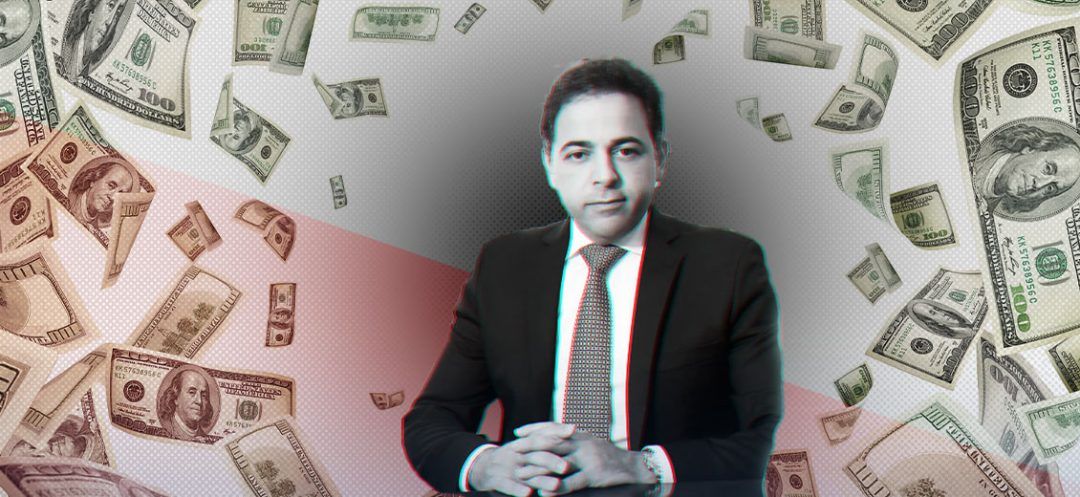
After delving into the topic of banks, let's assess the current state of their regulatory body, Lebanon’s Central Bank (BDL). Overall, the outcome is somewhat meager. However, we will refrain from preempting conclusions before outlining the pros and cons of this interim governorship, now in its one-year tenure.
We will partially rely on the annual report that the BDL has just released. Partially, because Acting Governor Wassim Mansouri has clearly chosen what to disclose and what to overlook. Now, let's address the critical issues:
1-The interim governor maintained the exchange rate stability... which had already been stable for 4 months prior to assuming office. This was facilitated by two factors: 1. Decreased money supply, limiting liquidity for LBP speculators; and 2. Increasing numbers of professionals being paid in dollars, thus reducing the need for foreign exchange markets. Thus, a natural balance between supply and demand was achieved.
2- Following years of continuous decline, Mansouri managed to increase BDL’s assets (or reserves) by about $1.3 billion. How? By purchasing dollars in the market. However, this achievement owes less to BDL’s skill and more to the abundant circulation of dollar liquidity.
Side note: The annual report confirms that BDL’s reserves (or assets) were $38 billion just before the crisis. This was the figure cited by the former governor, who claimed it was enough to meet Eurobond deadlines and prevent a criminal default. However, these guarantees proved futile as top officials had their own personal agendas.
3. Meanwhile, Mansouri stopped all subsidies for consumer products. This was a blatant scam that had persisted since Hassan Diab’s ill-fated government.
4. He is striving to limit cash transactions in order to avoid scrutiny from international regulatory bodies. This is firstly done by issuing licenses for electronic wallets. He is even planning to install point-of-sale terminals at ministries and introduce a PayGov app for administrative payments. However, currently, existing digital wallets mainly rely on cash deposits and have limited transaction caps, thereby limiting their effectiveness.
Secondly, by formalizing checks and bank cards in fresh dollars. A commendable initiative, provided that people start adopting them instead of cash, which is not guaranteed given the general distrust towards banks.
5. He stopped state funding without any qualms. In the meantime, the state no longer pays interest on Treasury bills held by the BDL. These Treasury bills in its wallet have decreased by 6 trillion over the course of a year.
In terms of foreign currency, Mansouri confirmed the $16 billion debt burden that the former governor had imposed on the state in 2023, by reassessing an old Treasury loan (which, back then, sparked considerable controversy by the same bunch of critics). This debt is in addition to the $5 billion in Eurobonds held by the BDL. However, other past loans extended to the state, especially to EDL, have been disregarded.
6. Equally disregarded, and concerning, is what BDL plans to do with its $81 billion in bank deposits (in foreign currency and LBP) clearly recorded on its balance sheet. Nonetheless, Lebanon’s Central Bank has significantly reduced the interest payments on these deposits and opted to remit 50% of them in LBP. This unilateral and authoritarian decision, bordering on cavalier, further diminishes banks' already limited revenue sources.
7. Mansouri does not extend his lavish generosity to the depositors, slashing their modest allowances from $400 to $300, then further down to $150. He also refrains from reassessing withdrawals over LBP 15,000 for a lollar, shifting responsibility to the government. While this stance on injustice may seem convenient, it falls short of commendable. Certainly nothing to boast about.
8. Moreover, BDL partially corrected an injustice towards banks by prohibiting the repayment of foreign currency loans in LBP and requiring non-resident debtors to repay in fresh dollars. However, this initiative came fashionably late, as 80% of the loans had already been repaid at a lower cost to debtors and at an exorbitant cost to banks and depositors.
9. Instead of relying on a lethargic parliament, he could have issued a circular to formally implement capital controls. Whether he has the authority to do so is debatable. However, in effect, it's hard to imagine anyone daring to contest such a decision.
10. Unsurprisingly, Nabih Berri's significant influence at the BDL has obviously increased.
Ultimately, it bears repeating: Lebanon’s Central Bank is unable to resolve the crisis, which, as the Acting Governor rightly points out, requires measures that are well beyond its scope, especially that BDL is financially bankrupt. So, it seems we'll never tire of needlessly debating this same vicious circle.
nicolas.sbeih@icibeyrouth.com.lb
Read more




Comments